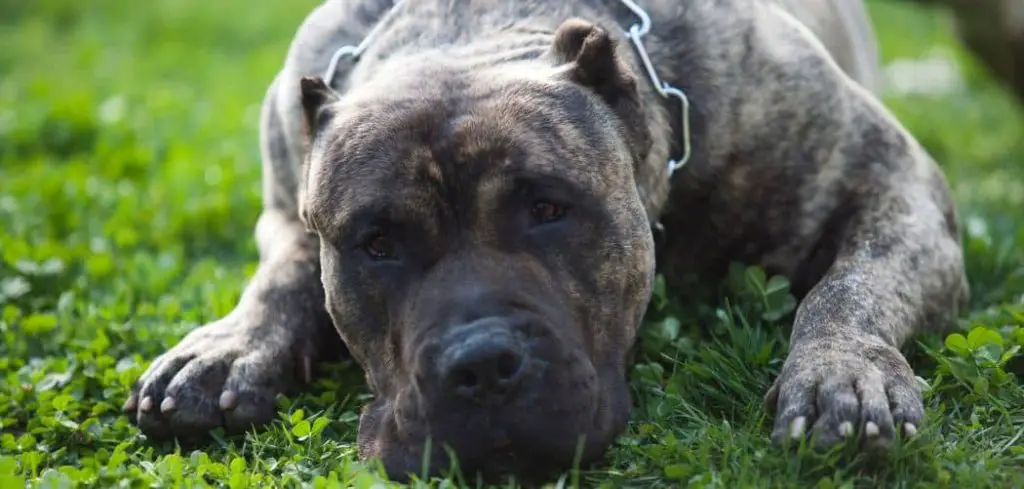If you’ve noticed your dog has developed a persistent cough and suddenly refuses to eat, it’s understandable to feel worried.
Kennel cough is a common upper respiratory condition in dogs, but when it’s combined with not eating, it could be a sign the illness is progressing or your dog is feeling more unwell than usual.
We explain the connection of these symptoms, what you can do at home, and guide you on when it’s time to visit your vet.
My Dog Has Kennel Cough and Not Eating — Why It Happens
When a dog has kennel cough and is not eating, it’s often because of throat irritation, fatigue, fever, secondary infections, or nausea from postnasal drip. The persistent coughing can make swallowing uncomfortable, and overall body fatigue may reduce appetite. In more severe cases, bacterial complications or pneumonia can further suppress your dog’s desire to eat.

Reasons Why Your Dog Has Kennel Cough and Not Eating
1. Throat Irritation and Pain
Kennel cough, or infectious tracheobronchitis, is known for causing a dry, hacking cough that sounds like a goose honk. This repetitive coughing irritates the throat and upper airways, making it painful for dogs to swallow.
If your dog’s throat is inflamed, they may:
Refuse food that’s dry or crunchy
Whine while attempting to swallow
Gag or spit food back out
Offering soft, lukewarm meals may help, but persistent throat irritation may need vet-prescribed medication.
Related: Dog vomiting and not eating (Causes and when to worry)
2. Fatigue and Weakness
While kennel cough is usually mild, it can cause general fatigue, especially in older dogs or puppies. The constant coughing, disrupted sleep, and immune system workload can make your dog feel drained—and that often leads to refusing food.
Look for:
Sleeping more than usual
Lethargy or disinterest in toys
Slow walking or reluctance to move
Rest, hydration, and supportive care are key here. If symptoms worsen, there may be a more serious issue at play.
3. Fever or Infection
Some dogs with kennel cough develop secondary bacterial infections, such as pneumonia or bronchitis. This can cause fever, nasal discharge, rapid breathing, and a complete lack of appetite.
Additional signs include:
Warm ears or body
Shivering or trembling
Loss of interest in water
Productive or wet-sounding cough
If you suspect a fever, it’s time to call your vet. A course of antibiotics or anti-inflammatories may be necessary.
4. Postnasal Drip or Nausea
Postnasal drip from sinus inflammation or nasal discharge can result in stomach upset, especially when your dog swallows mucus. This can lead to nausea, coughing up foam, or a loss of appetite.
You might notice:
Lip licking or drooling
Avoidance of food, especially after coughing
Occasional gagging or vomiting
Keeping your dog’s head elevated while resting and using a humidifier can help ease symptoms.
5. Stress and Environmental Change
Dogs often catch kennel cough in boarding facilities or shelters. If your dog recently spent time away from home, stress and anxiety may also be contributing to the refusal to eat.
Behavioral signs include:
Pacing or restlessness
Hiding or reluctance to engage
Barking or whining more than usual
Offer meals in a quiet, familiar area and give your dog time to decompress from recent changes.
6. Progression to Pneumonia
While most cases of kennel cough resolve within 1–2 weeks, in rare cases the infection can travel deeper into the lungs, causing pneumonia—a serious condition that can lead to persistent coughing, appetite loss, fever, and labored breathing.
Warning signs include:
Rapid or shallow breaths
Coughing up mucus or blood
Blue-tinged gums
Extreme fatigue
Seek emergency vet care if these symptoms develop.
What to Do If Your Dog Has Kennel Cough and Isn’t Eating
If your dog still appears stable but isn’t eating well, here’s what you can try at home:
Offer bland, soft meals like boiled chicken and rice or baby food (no garlic/onion)
Warm food slightly to release aromas and encourage interest
Use a humidifier or steam from a hot shower to ease throat inflammation
Encourage hydration with bone broth or ice chips if they refuse water
Keep their space calm and avoid walks in cold or dusty environments
Avoid using cough suppressants unless your vet recommends them. They may interfere with your dog’s ability to clear mucus from the lungs.
When to Call or Visit Your Vet
Veterinary attention is necessary if:
Your dog hasn’t eaten anything in 24 hours
Cough becomes wet, frequent, or painful
Breathing is labored or noisy
Fever, nasal discharge, or lethargy worsen
Your dog is a puppy, senior, or has a weakened immune system
Your vet may recommend diagnostics like chest X-rays or prescribe antibiotics, anti-inflammatories, or appetite stimulants.
Read more: My dog has cushings and is not eating (Here’s why)
Key Takeaway
If your dog has kennel cough and isn’t eating, take it as a sign their body needs rest and support. While many cases of kennel cough are mild, loss of appetite can mean the illness is taking more of a toll than expected—or that complications are developing.
With the right care and timely veterinary attention, most dogs recover fully. Be gentle, patient, and attentive—your dog will appreciate the comfort while they heal.
